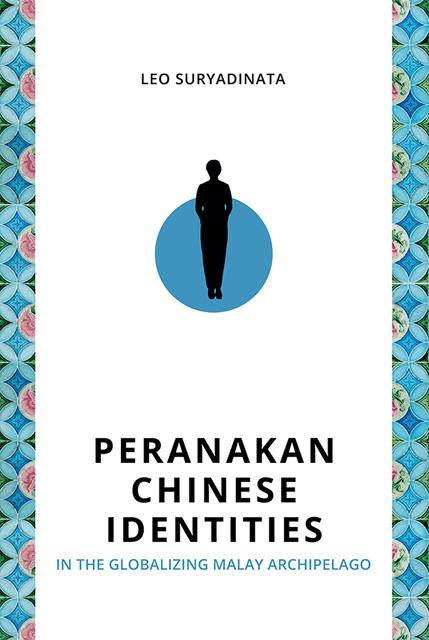Book contents
- Frontmatter
- Contents
- Preface
- Acknowledgements
- Part I Regional Dimensions: Indonesia, Malaysia and Singapore (IMS)
- Part II Focusing on Indonesia
- Appendix 1 The Prospects of the Peranakan Community at the Age of Globalization, by Tan Ta Sen
- Appendix 2 Some Books on the Peranakan Chinese Published between 2007 and 2021
- Bibliography
- Index
- About the Author
12 - State and “Chinese Religions” in Indonesia: Confucianism, Tridharma and Buddhism During the Suharto Rule and After
Published online by Cambridge University Press: 01 September 2023
- Frontmatter
- Contents
- Preface
- Acknowledgements
- Part I Regional Dimensions: Indonesia, Malaysia and Singapore (IMS)
- Part II Focusing on Indonesia
- Appendix 1 The Prospects of the Peranakan Community at the Age of Globalization, by Tan Ta Sen
- Appendix 2 Some Books on the Peranakan Chinese Published between 2007 and 2021
- Bibliography
- Index
- About the Author
Summary
State and “Chinese Minority Religions”
For political scientists and political sociologists, “state” is an important actor to be considered in dealing with communities and societies in developing societies. This is also the case when one deals with religions in developing countries. Of course, there are strong states and weak states, and their role differs. A strong state tends to determine the form and contents of minority religions. A question can be posed here: is there strong evidence to substantiate this argument? If so, to what extent a strong state determines the form and contents of minority religions? I would like to use Suharto’s Indonesia and post-Suharto’s Indonesia as an example to illustrate the role of a strong state and its impact on “Chinese minority religions”.
A few words about the Chinese in Indonesia are in order. Indonesia is a multi-ethnic and multi-religious society. It has a population of around 238 million, consisting of more than one hundred ethnic groups and six major religions, namely Islam, Protestantism, Catholicism, Hinduism (Hindu-Bali), Buddhism and Confucianism. About 87 per cent of the Indonesian population are Muslim. Ethnic Chinese is one of the Indonesian ethnic groups and constitutes only approximately two per cent of the total population. However, Chinese Indonesians are also multi-religious; the majority are Buddhists, followed by Christians (Protestants and Catholics), Confucians, and Muslims. Economically, the majority of Chinese Indonesians belong to the middle class. Culturally, they are also divided into Indonesian-speaking and Chinese-speaking subgroups, but the former forms the majority.
When Suharto came to power after crushing the so-called 30th September 1965 movement, he introduced a total assimilation policy towards the Chinese minority group, urging them to integrate with and assimilate into the “indigenous society” (masyarakat Indonesia asli) without any delay. He believed that the Chinese minority was a security risk and had a tendency to be oriented toward mainland China. But most importantly he had strong prejudice against things Chinese. He believed in establishing an indigenous-based nation, seeing Chinese culture as “foreign” and hence had to be eradicated. In order to achieve this goal, his newly established regime decided to eliminate four pillars of Chinese culture, namely ethnic Chinese organizations, Chinese schools, Chinese mass media (especially newspapers) and Chinese religions.
- Type
- Chapter
- Information
- Publisher: ISEAS–Yusof Ishak InstituteFirst published in: 2023

